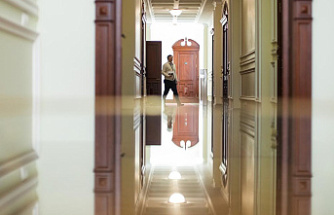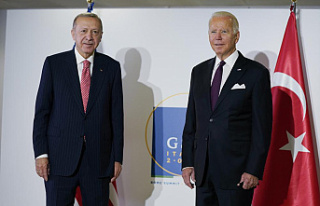Public broadcaster NHK revealed that Kishida's Liberal Democratic Party (with its junior coalition partner Komeito) was expected to win between 239 and 288 seats in Japan's lower house (465 members), the most powerful of Japan’s two-chamber Diet.
According to projections, the LDP alone would win 212-253 seats. Komeito would gain 27-35 seats.
They will have combined seats that exceed a parliamentary majority (233), a decrease from the 305 seats.
After winning the leadership race within his ruling party, Kishida was elected prime minister on October 4. He dismantled the lower house just 10 days after he took office. Conservative leaders viewed him as a successor to Yoshihide Sug and his influential predecessor Shinzo abe.
Media predictions were more or less accurate in the exit polls. It was unclear if Kishida's party can retain a majority and how many seats it will lose compared to 276 before the election. Official results were expected to be available by Monday morning.
Kishida's immediate task was to gather support for a party that has been weakened by Suga’s perceived high-handed approach towards pandemic measures, and his insistent on holding the Tokyo Summer Olympics despite wide opposition due to a high number coronavirus cases. These numbers have since fallen sharply.
Kishida repeatedly reiterated his resolve to listen to people and address criticisms that Abe-Suga's nine-year-old leadership had fomented corruption, tamed bureaucrats, and silenced opposing views.
The campaign has been largely focused on COVID-19 responses and revitalizing our economy.
The ruling party stressed the importance to have a stronger military in the face of China's increasing influence and North Korea’s missile and nuclear threats. However, the opposition parties emphasized diversity and advocated for gender equality.
Opposition leaders claim that LDP governments in recent years have increased the gap between rich & poor, failed to support the economy during the Pandemic, and stalled Gender Equality and Diversity Initiatives. Japan ranked 120th this year in the World Economic Forum's 156 nation gender gap ranking.
After a brief period of rule by the center-left Democratic Party of Japan in 2009 and 2012, the opposition has struggled for years to get enough votes to form government. They have not been able present a grand vision of the country.
Concerning the economy, Kishida emphasizes growth through raising incomes. Opposition groups, however, focus more on redistribution wealth and demand cash payouts for low-income families that are affected by pandemics.
In his last speech Saturday in Tokyo Kishida promised to stimulate growth and "distribute it's fruit" to the people for income. "It is up to you to decide who can responsible do so."












